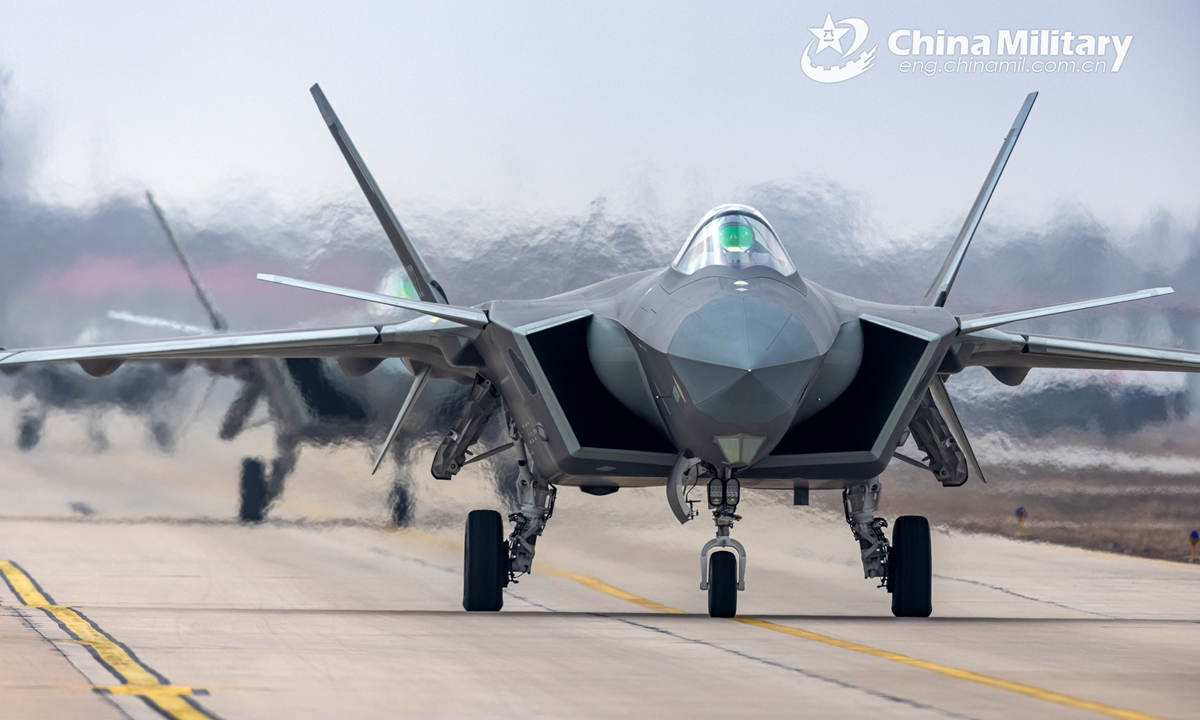China Claims Its Fifth Gen J-20s “Shot Down” 17 Indian Rafales in Air Combat Simulation
In a recent air combat simulation organized by China, the fifth-generation J-20 "Mighty Dragon" fighter jets reportedly shot down 17 Indian Air Force Rafale fighter aircraft.
(DEFENCE SECURITY ASIA) — In a recent air combat simulation organized by China, the fifth-generation J-20 “Mighty Dragon” fighter jets reportedly shot down 17 Indian Air Force Rafale fighter aircraft.
This achievement by the People’s Liberation Army Air Force (PLAAF) was reported by a Chinese pilot affiliated with the Wang Hai Air Group from the country’s Eastern Theater Command.
As reported by the Bulgarian Military defense portal, the Chinese pilot stated that he and his colleagues “shot down” 17 Indian Air Force Rafale fighter jets during the air combat simulation.
The relationship between these two major Asian powers is known to be strained, especially in the mountainous border regions where their military forces have previously engaged in conflict.
The Indian Air Force owns 36 Rafale fighter aircraft developed by Dassault Aviation and last year, reportedly ordered an additional 26 of these 4.5-generation fighter jets for its navy’s use.

The naval variant of the Rafale fighter aircraft is intended for use on India’s aircraft carriers.
In addition to the Rafale fighter jets, the Indian Air Force also possesses about 250 Sukhoi Su-30MKI fighter aircraft, most of which are domestically built by Hindustan Aeronautics Ltd (HAL).
China and other countries’ air forces use air combat simulations to test and develop their air tactics and strategies without exposing themselves and their assets to actual combat conditions.
Thus, the outcomes of these simulations are primarily for the study of military planners and do not represent what might actually occur on the battlefield.
Both the J-20 “Mighty Dragon” and Rafale fighter aircraft are equipped with AESA (Active Electronically Scanned Array) radars, but the fifth-generation fighter is reported to have a more powerful radar compared to the 4.5-generation French-made aircraft.
Moreover, the J-20 fighter jet is stealth-capable, unlike the Rafale, which only has a low Radar Cross Section.

Last year, the J-20 “Mighty Dragon” conducted its maiden flight with two new, more powerful engines, allowing it to fly further and stay longer in the air.
This test flight took place at the Chengdu Aircraft Industry Corporation (CAIC) facility, where the J-20 was equipped with the latest engines, designated WS-15, replacing its older WS-10 engines.
The WS-15 engines, which were publicly revealed last year after several years of development, will gradually replace the WS-10 engines.
According to defense analysts, while the true capabilities of the J-20 fighter jet have yet to be fully tested, its fifth-generation status with new engine capabilities undoubtedly positions it as a superior fighter with enhanced endurance compared to its peers.
With the new WS-15 engines, the J-20 gains a strategic advantage over its competitors in terms of endurance.
These engines enable the J-20 to conduct longer patrols, remain airborne longer for air defense tasks, and execute air strike missions against Taiwan from Eastern China without needing mid-air refueling.

The latest WS-15 engines also allow it to carry out air strikes against Western military facilities in Japan without requiring air-to-air refueling.
The WS-15 is touted as the most capable fighter jet engine integrated into a twin-engine aircraft (at least compared to Russian-made engines like the AL-41F and D-30F-6).
The thrust power of the WS-15 is said to reach between 19-20 tons, compared to the 17.5 tons of thrust achieved by the F-22’s F119 engine.
The WS-15 engines, to be used by the J-20, are developed by the Aero Engine Corp of China (AECC).
China is reported to possess approximately 200 J-20 fighter aircraft. – DSA
(MORE ABOUT J-20 “MIGHTY DRAGON”)



Comments are closed.